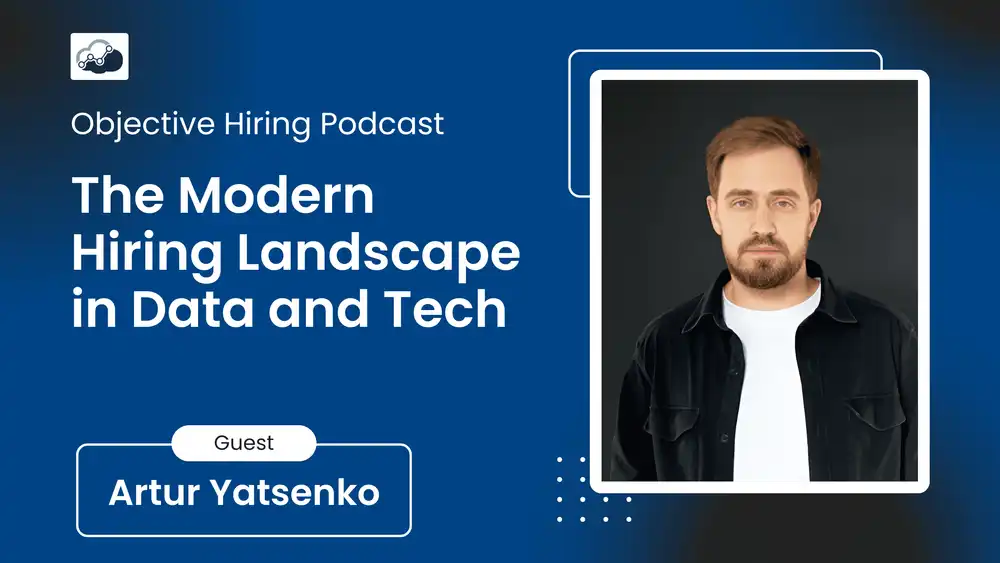Artur Yatsenko on Hiring for Mindset Over Hard Skills in Data Teams

Artur Yatsenko on Hiring for Mindset Over Hard Skills in Data Teams
In this episode of the Objective Hiring podcast, Tim Freestone, founder of Alooba, sits down with Artur Yatsenko, Director of Data Engineering at Urban Sports Club, to discuss what really matters when hiring for data roles.
For Artur, the number one priority isn’t a list of programming languages or frameworks—it’s mindset.
“We definitely want to hire the right mindsets… finding people who are curious about data and tech and also have a good sense of ownership.”
Why Mindset Matters
Artur stresses that curiosity, ownership, and collaboration are the key traits he looks for. Technical skills can be taught, but these core qualities define whether someone will thrive in the team.
“People who actually are curious and want to learn more from each other… rather spread the knowledge and be flexible to change their mind as well.”
This approach has proven effective in his hiring history. He recalled a candidate who lacked proficiency in Python or SQL, but tackled a case study using Excel—and did it well. That candidate is now in a managerial role.
“The technical skill was not a problem… that perseverance really showed up and paid off eventually.”
Identifying the Right Mindset
In interviews, Artur focuses on how candidates think and communicate. He values those who can explain complex ideas in simple terms and adapt their message to different audiences.
“It sounds really simple, but… if they don’t adapt the message, how would they communicate it to a business stakeholder?”
Red flags, on the other hand, include arrogance and inflexibility—regardless of technical expertise.
“One candidate came in like, ‘I know everything.’ That was intimidating and showed a lack of flexibility. Ultimately, I said no.”
Building a Fair and Collaborative Process
Artur also believes in involving multiple stakeholders to make hiring decisions more objective. He prefers a team-based approach, ensuring that no one person makes the final call alone.
“Even if I’m the hiring manager, I still have input from different people. The process is more objective that way.”
He shared an example of how a poor fit could sometimes be reassigned rather than let go. When hypergrowth made processes less rigorous, some mismatches occurred—but being open-minded about reassigning roles helped retain talent.
Mindset Over Tools
The discussion also touched on how tool-specific requirements can stifle innovation. Artur emphasises that it's not about whether a candidate uses Python or Excel, but how they solve problems.
“It’s about the thought process. You don’t always have the answers, but you collaborate with people to generate ideas.”
This aligns with Alooba’s mission of encouraging companies to assess candidates more objectively—focusing on potential and real-world problem-solving rather than just resumes or rigid skills checklists. If your organisation wants to assess candidate potential more fairly and efficiently, Alooba’s skills assessments might be what you're looking for.
Final Thoughts
Artur’s perspective offers a valuable reminder: mindset isn't just a buzzword. It’s the foundation of strong, collaborative teams. Skills can be taught, but the right attitude, humility and willingness to learn are what make people successful in the long run.
“Hiring is complicated… but having other people in the process helps. You're not really alone within that tedious process of hiring.”
His final takeaway? Look for people who persevere. Who communicate clearly. Who are curious. And who want to work with others—not just next to them.
Ready to hear more from Artur?
👉 Listen Now